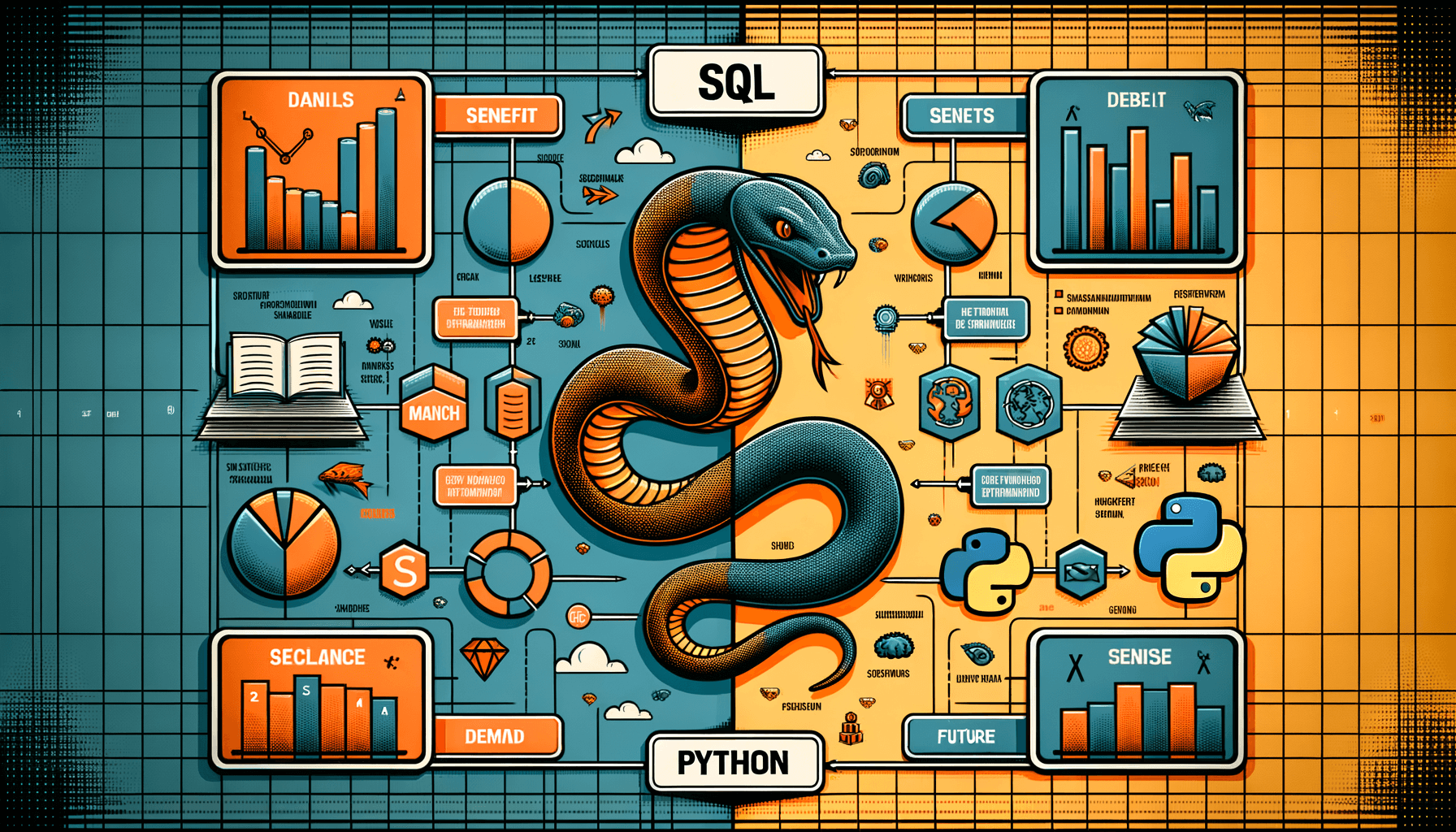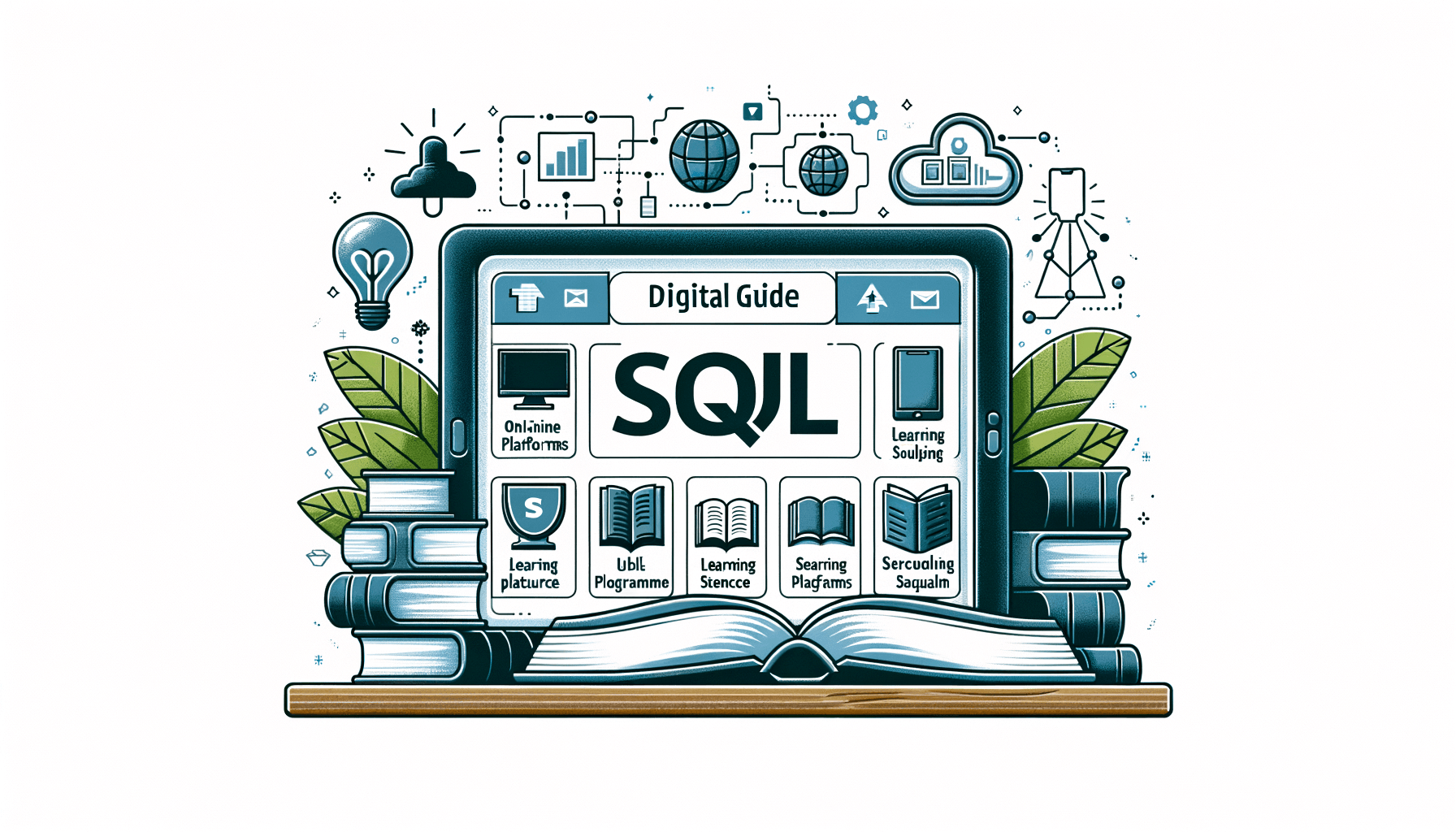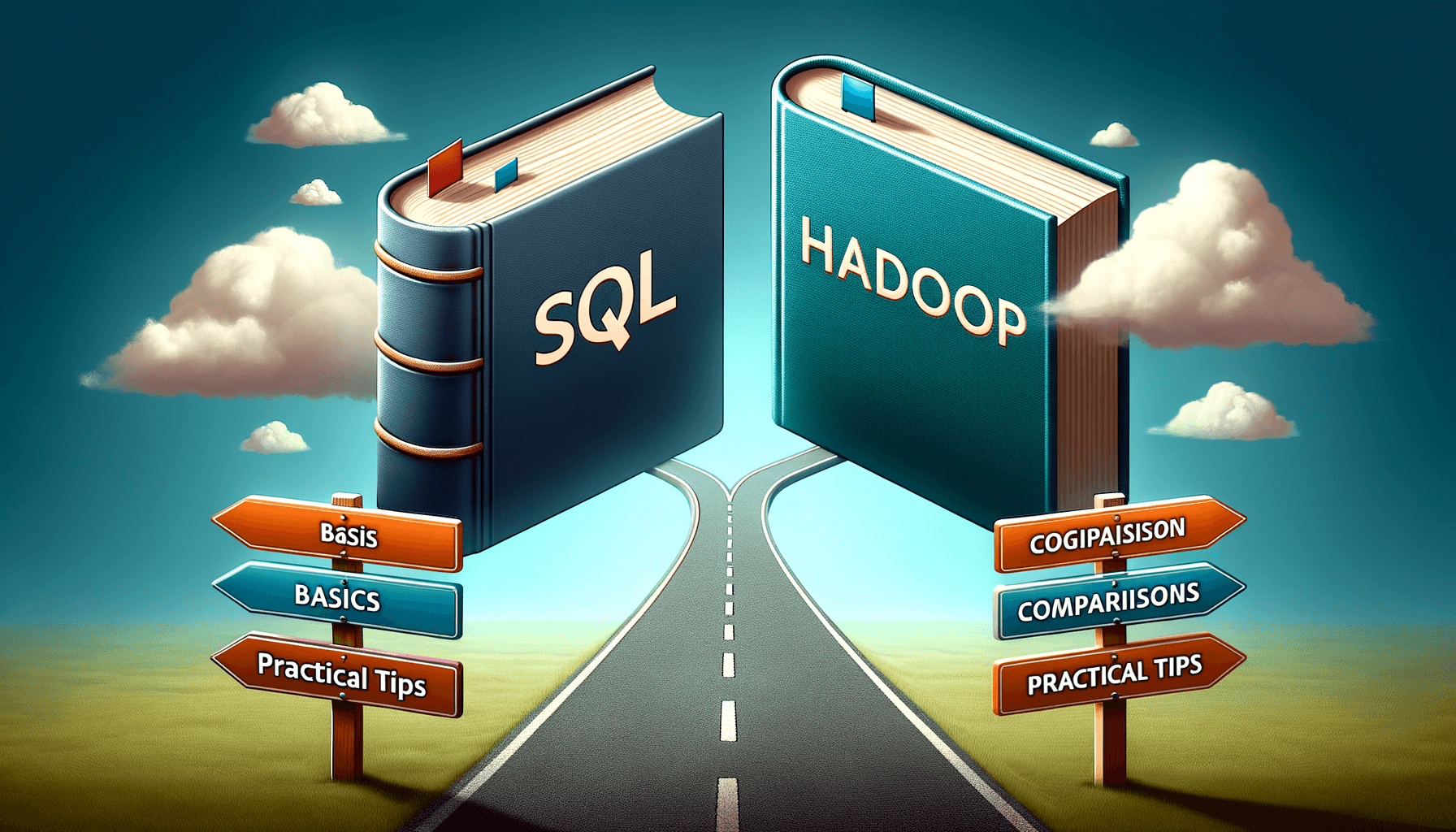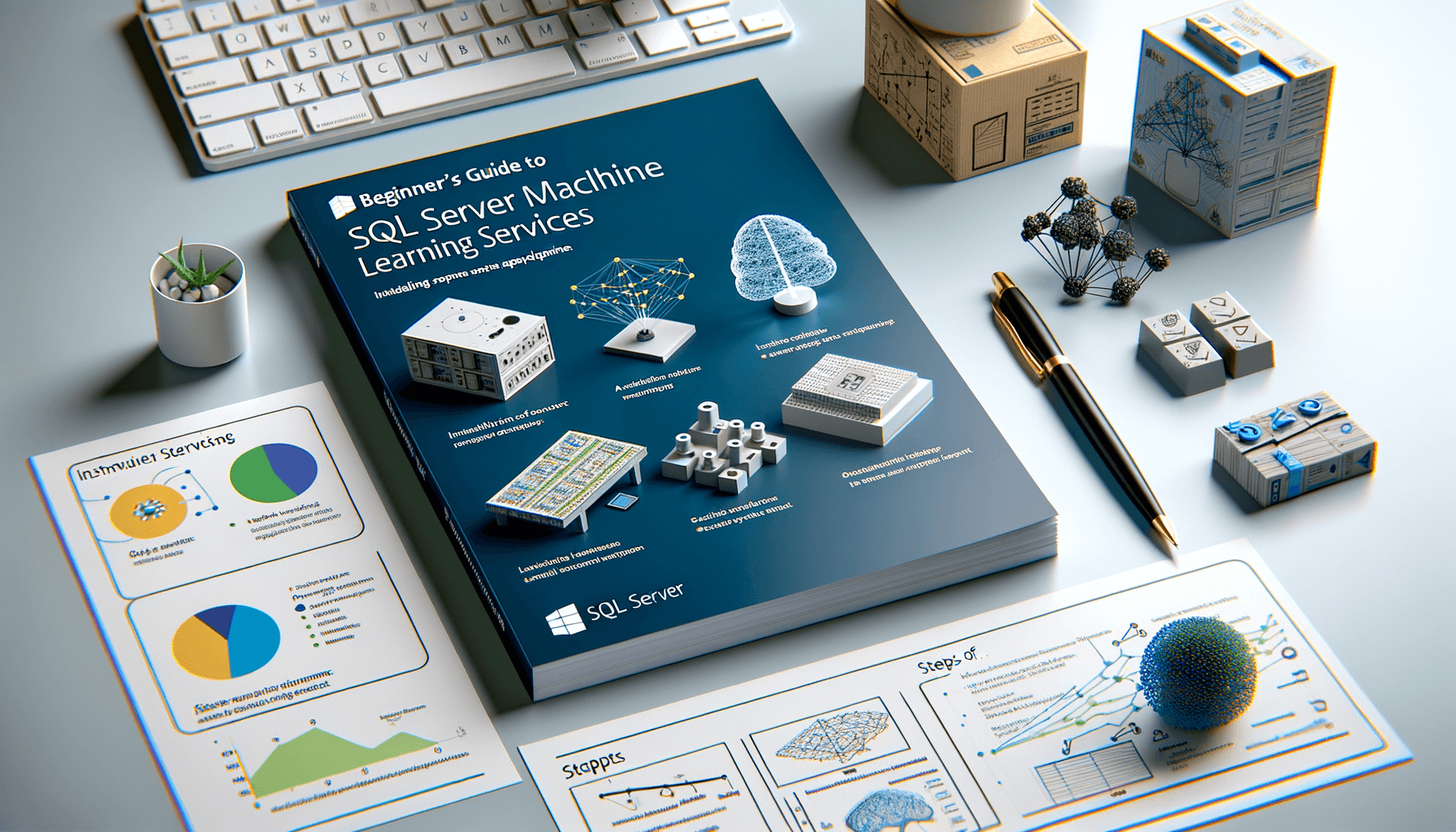A big variety of articles and resources

Should we learn SQL or Python for a better future?
 Sia Author and Instructor
Learn SQL
Sia Author and Instructor
Learn SQL
14 minute read
In today's tech-driven world, choosing the right programming language to learn can shape your future career. With so many options, it's tough to decide which one will give you the best opportunities. Two popular choices are SQL and Python. Each has its own strengths and fits different job roles. This article will help you understand the importance of both and guide you in making an informed decision.
Key Takeaways
- SQL and Python are both important languages but serve different purposes.
- SQL is mainly used for managing and querying databases.
- Python is versatile and used in many fields like data science, machine learning, and web development.
- Learning both SQL and Python can open more job opportunities and higher salaries.
- Consider your career goals and industry needs when choosing which language to learn.
The Importance of Programming Languages in Modern Careers
The Role of Technology in the Job Market
In today's world, technology is everywhere, changing how we work and live. Knowing how to code is now a must-have skill for many jobs. From healthcare to finance, every field needs tech-savvy people. This means that learning to code can open up many job opportunities for us.
Why Learning Programming Languages is Crucial
Programming languages help us talk to computers and make them do what we want. Learning these languages is like learning a new way to think. It helps us solve problems better and faster. Plus, with hands-on projects and personalized support, we can gain practical skills for real-world applications. This makes us more valuable in the job market. So, picking up coding skills is not just smart; it's essential for a bright future.
Overview of SQL and Python
What is SQL?
SQL, or Structured Query Language, is a specialized language used for managing and manipulating databases. It allows us to perform tasks such as querying data, updating records, and managing database structures. SQL is essential for anyone working with large datasets because it provides a standardized way to interact with data stored in relational databases.
What is Python?
Python is a versatile programming language known for its simplicity and readability. It is widely used in various fields, from web development to data science. Python's extensive libraries and frameworks make it a popular choice for both beginners and experienced developers. Its ability to handle different types of tasks makes it a valuable tool in the tech industry.
Key Differences Between SQL and Python
While both SQL and Python are powerful tools, they serve different purposes. SQL is primarily used for database management, whereas Python is a general-purpose language that can be used for a wide range of applications. Here are some key differences:
- Purpose: SQL is designed for querying and managing databases, while Python is used for general programming tasks.
- Syntax: SQL has a declarative syntax, meaning you specify what you want to do with the data, whereas Python has an imperative syntax, where you write step-by-step instructions.
- Use Cases: SQL is commonly used in data management, business intelligence, and web development. Python is used in data science, machine learning, web development, and more.
Understanding the differences between SQL and Python can help us choose the right tool for the job and enhance our career prospects.
Applications of SQL in Various Industries
SQL in Data Management
SQL is a cornerstone in data management. It helps us store, retrieve, and manipulate data efficiently. Many companies rely on SQL to handle their databases, ensuring data integrity and security. For a data analyst, mastering SQL is essential as it allows them to query databases and extract meaningful insights.
SQL in Business Intelligence
In business intelligence, SQL plays a crucial role. It enables us to analyze large datasets and generate reports that inform decision-making. With SQL, we can create complex queries to uncover trends and patterns, making it an invaluable tool for businesses aiming to stay competitive.
SQL in Web Development
Web development also benefits from SQL. It is used to manage the backend databases of websites and web applications. By using SQL, developers can ensure that data is stored correctly and can be retrieved quickly, enhancing the user experience. SQL's ability to handle large volumes of data makes it ideal for web development projects.
SQL's versatility across various industries highlights its importance in the modern job market. Whether in data management, business intelligence, or web development, SQL skills are highly sought after and can open numerous career opportunities.
Applications of Python in Various Fields
Python in Data Science
Python has become a cornerstone in the field of data science. Its simplicity and readability make it an ideal choice for data analysis and visualization. Libraries like Pandas and Matplotlib allow us to manipulate data and create insightful graphs with ease. Python's versatility enables us to handle large datasets efficiently, making it a preferred tool for data scientists.
Python in Machine Learning
Machine learning is another area where Python shines. With powerful libraries such as TensorFlow and Scikit-Learn, we can build and train complex models to predict outcomes and identify patterns. Python's extensive community support and comprehensive documentation make it easier for us to dive into machine learning projects, even if we're beginners.
Python in Web Development
Python is also widely used in web development. Frameworks like Django and Flask allow us to create robust and scalable web applications quickly. These frameworks provide built-in features for handling user authentication, database interactions, and URL routing, which simplifies the development process. Python's clean syntax and extensive libraries make it a popular choice for web developers.
Learning Curve and Accessibility
Ease of Learning SQL
SQL is often considered one of the easier programming languages to learn. Its syntax is straightforward, making it accessible even for beginners. Many find that they can start writing basic queries within a few days. Mastering SQL can be achieved through various online courses and tutorials, which often include hands-on projects to help solidify understanding.
Ease of Learning Python
Python, on the other hand, is known for its readability and simplicity. Its syntax is similar to everyday English, which makes it an excellent choice for those new to programming. Python's extensive libraries and community support make it easier to find resources and get help when needed. Learning Python can be a fun and rewarding experience, especially with the abundance of interactive tutorials available.
Resources for Learning Both Languages
There are numerous resources available for learning both SQL and Python. Online platforms offer a range of courses, from beginner to advanced levels. Books, forums, and coding bootcamps also provide valuable learning opportunities. For those interested in a more structured approach, a mastering PostgreSQL performance and query optimization course offers practical SQL learning with real-world problem-solving, hands-on projects, and expert-led training for career advancement in data management.
Combining the strengths of both SQL and Python can open up numerous career opportunities and make you a versatile professional in the tech industry.
Job Market Demand for SQL Skills
Industries Seeking SQL Professionals
SQL skills are in high demand across various industries. From finance to healthcare, many sectors need professionals who can manage and analyze data. Finance companies, for example, use SQL to handle large datasets and generate reports. In healthcare, SQL helps in managing patient records and research data. The versatility of SQL makes it a valuable skill in almost any field.
Common Job Roles Requiring SQL
There are several job roles where SQL is essential. Some of the most common positions include:
- Data Analyst
- Database Administrator
- Business Intelligence Analyst
- Software Developer
Each of these roles requires a strong understanding of SQL to perform tasks like data querying, database management, and report generation.
Salary Expectations for SQL Experts
Salaries for SQL professionals can vary based on experience and location. However, on average, SQL experts can expect competitive salaries. For instance, a Data Analyst with SQL skills can earn between $60,000 and $90,000 per year. Database Administrators often see salaries ranging from $70,000 to $100,000 annually. These figures highlight the financial benefits of mastering SQL.
SQL skills can significantly boost your career prospects, offering opportunities in various industries and competitive salaries. Whether you're just starting or looking to advance, learning SQL can be a game-changer.
Job Market Demand for Python Skills
Industries Seeking Python Developers
Python is a versatile language used in many fields. From web development to data science, its applications are vast. Many tech companies look for Python skills when hiring. This includes industries like finance, healthcare, and entertainment. Python's simplicity and power make it a favorite among developers.
Common Job Roles Requiring Python
There are several job roles where Python is essential. These include data scientists, web developers, and software engineers. Python is also used by machine learning engineers and automation experts. Knowing Python can open doors to many exciting career paths.
Salary Expectations for Python Developers
Python developers often earn competitive salaries. Entry-level positions can start at around $70,000 per year. With experience, salaries can rise significantly. Senior developers can earn over $120,000 annually. The demand for Python skills ensures that salaries remain high.
Python's role in the job market is growing. Learning Python can lead to many opportunities and a bright future.
Future Trends in SQL and Python
Evolving SQL Technologies
SQL continues to evolve with new features and improvements. One major trend is the integration of SQL with big data technologies. This allows for better handling of large datasets, making SQL even more valuable in data management. Additionally, cloud-based SQL services are becoming more popular, offering scalable and flexible solutions for businesses.
Advancements in Python
Python is also seeing significant advancements. The language is becoming more efficient and versatile, with new libraries and frameworks being developed regularly. These advancements make Python a top choice for various applications, from web development to machine learning. Python's adaptability ensures it remains relevant in the ever-changing tech landscape.
Predicted Industry Shifts
We can expect to see shifts in industry demands as both SQL and Python continue to grow. More companies are looking for professionals who can handle both languages, as this dual proficiency can lead to more efficient and effective solutions. This trend highlights the importance of learning both SQL and Python for a competitive edge in the job market.
As technology evolves, staying updated with the latest trends in SQL and Python will be crucial for career growth. Combining these skills can open up new opportunities and make us more valuable in the job market.
Combining SQL and Python for Enhanced Career Prospects
Benefits of Dual Proficiency
By learning both SQL and Python, we can open up a world of opportunities. Having skills in both languages makes us more versatile and valuable in the job market. We can handle data management with SQL and perform complex data analysis with Python. This combination is especially useful in fields like data science and business intelligence.
Real-World Examples of Combined Use
In many industries, professionals use SQL and Python together to solve problems. For example, in data science, we might use SQL to extract data from a database and then use Python to analyze it. This approach is common in business intelligence, where we need to gain insights from large datasets. Another example is web development, where SQL manages the database, and Python handles the backend logic.
How to Integrate Learning Both Languages
To learn both SQL and Python effectively, we can follow a structured approach:
- Start with the basics of SQL, focusing on queries and data manipulation.
- Move on to Python, learning its syntax and basic programming concepts.
- Practice combining both languages through mini projects, like creating a database and analyzing its data.
- Take a mini course: SQL functions and techniques - enhance SQL skills with advanced functions and techniques. Gain competitive edge in BI. Practical skills enhancement through real-world problems and hands-on projects.
By mastering both SQL and Python, we can significantly boost our career prospects and stay competitive in the ever-evolving job market.
Expert Opinions on SQL vs. Python
Insights from Industry Leaders
Industry leaders often highlight the unique strengths of both SQL and Python. SQL is praised for its efficiency in handling large datasets and its essential role in database management. On the other hand, Python is celebrated for its versatility and ease of use in various applications, from web development to data science. Both languages offer distinct advantages that can significantly enhance one's career prospects.
Academic Perspectives
Academics emphasize the importance of understanding both SQL and Python. They argue that while SQL is crucial for database querying and management, Python's broad applicability makes it a valuable tool for a wide range of tasks. Learning both languages can provide a well-rounded skill set that is highly sought after in the job market.
Case Studies and Testimonials
Real-world examples and testimonials from professionals illustrate the benefits of mastering both SQL and Python. For instance, data analysts often use SQL for data extraction and Python for data analysis and visualization. This combination allows them to handle complex tasks more efficiently.
Combining SQL and Python can open up numerous career opportunities and provide a competitive edge in the job market.
Making an Informed Decision
Assessing Personal Career Goals
When deciding between SQL and Python, we must first consider our personal career goals. Are we more interested in data management, or do we lean towards developing applications? Understanding our own interests and strengths can guide us in choosing the right language to learn.
Evaluating Industry Needs
Next, we should look at the needs of the industry we want to enter. Different fields have different demands. For example, the finance sector often requires strong SQL skills, while tech companies might prefer Python for its versatility. Knowing what skills are in demand can help us make a better choice.
Strategizing Long-Term Learning Paths
Finally, we need to plan our learning journey. This means setting short-term and long-term goals. We might start with one language and then learn the other to enhance our skill set. Combining both SQL and Python can open up more job opportunities and make us more competitive in the job market.
Making an informed decision requires us to think about our career goals, understand industry needs, and plan our learning path carefully. By doing so, we can choose the right language to secure a better future.
When it comes to making an informed decision, having the right resources is key. Our website offers a variety of courses designed to help you improve your skills and advance your career. Don't miss out on this opportunity to learn from experts and get personalized guidance. Visit us today and find the perfect course for you!
Conclusion
In deciding whether to learn SQL or Python, it is important to consider your goals and interests. SQL is essential for managing and querying databases, making it a valuable skill for data analysis and business intelligence roles. Python, on the other hand, is a versatile programming language used in various fields such as web development, data science, and automation. Both languages offer strong career prospects, but your choice should align with your personal and professional aspirations. Ultimately, learning either SQL or Python will provide a solid foundation for a successful future in the tech industry.
Frequently Asked Questions
What is SQL?
SQL stands for Structured Query Language. It is used to manage and manipulate databases.
What is Python?
Python is a high-level programming language known for its readability and versatility. It is used in web development, data science, and more.
Which is easier to learn, SQL or Python?
Both SQL and Python are considered beginner-friendly, but Python might be easier for complete beginners due to its simple syntax.
Can I get a job knowing only SQL?
Yes, many jobs require only SQL skills, especially in data management and business intelligence.
Can I get a job knowing only Python?
Yes, Python is widely used in various fields like web development, data science, and machine learning, so there are many job opportunities.
Should I learn both SQL and Python?
Learning both can be very beneficial as they complement each other well, especially in data-related fields.
What industries use SQL?
SQL is used in industries like finance, healthcare, retail, and any field that requires data management.
What industries use Python?
Python is used in tech, finance, healthcare, education, and many other industries for various applications like web development and data analysis.
Related Articles

Best SQL Learning Resources: Your Ultimate Guide
10 minute read

Do we need SQL knowledge to learn Hadoop?
14 minute read





